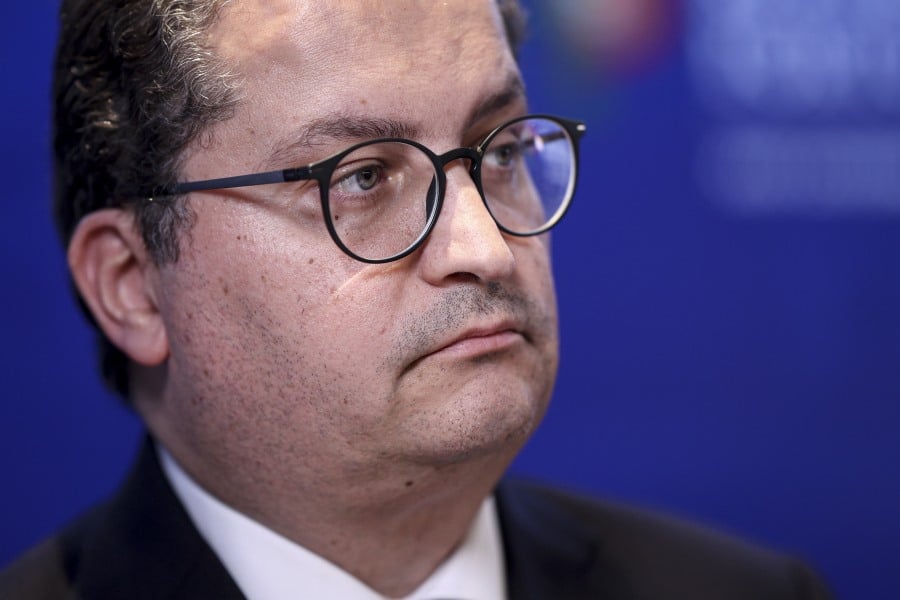In interview with Financial Times, minister highlights importance of budgetary balance
In an interview published today by British newspaper Financial Times, Portugal’s Finance Minister has shown that the country is “cautious on joining the EU defence spending splurge”.
In spite of the urgency expressed by the European Commission to increase defence preparedness – as well as the efforts by NATO to encourage Portugal to at least reach the minimum 2% target of GDP when it comes to defence contributions – outgoing finance minister Joaquim Miranda Sarmento has taken what the FT regards as “a cautious stance”.
Portugal is willing to use the greater flexibility of European budgetary rules to increase its defence spending, but the limit to this increase is the maintenance of a small budget surplus, he stressed.
While acknowledging that Portugal’s “budgetary position, combined with the flexibility of the European Union’s budgetary rules’ gives the country ‘greater room for manoeuvre to increase defence spending more quickly”, the minister definitely set a limit to what can be done, says the FT.
Miranda Sarmento went over the ‘old ground’ frequently touted by his party: In 2023 and 2024, Portugal recorded two consecutive years of budget surpluses, the first time this has happened in at least five decades. The National Statistics Institute (INE) revealed last week that the surplus in 2024 was 0.7% of GDP, higher than the 0.4% projected by the government. For 2025, the estimate at the moment is for a new budget surplus, this time a little more moderate, at 0.3% of GDP.
As Público explains: “In the interview, Miranda Sarmento explains the importance of Portugal maintaining this kind of budgetary results with the fact that this is the country’s way of guaranteeing a cushion that will leave it prepared for the ‘eventuality of bad economic times arriving in the coming years’.
“The minister also set the goal of bringing public debt ‘to 80% of GDP or even below by the end of the decade”.
On Sunday, in an interview with Jornal de Negócios, Joaquim Miranda Sarmento also tried to convey the idea that accelerating the targets for increasing defence spending (which to this day remain at only reaching 2% of GDP by 2029) is possible, but with limitations. “The key word is exactly balance”, he told the paper. “We have to spend more on defence, strengthen the welfare state, lower the tax burden and maintain a balanced budget. In none of these areas can we go faster than this balance requires. But I think it is possible to maintain a balance,” he added, opening the door, says Jornal de Negócios, to the fact that AD will present new tax cuts, namely in IRS and IRC in its electoral programme.
Miranda Sarmento also told the paper that the government has yet to decide whether to make use of the national escape clause from European budgetary rules that the Commission is offering, and whether to use the €150 billion fund that the EU will be creating to grant loans to member states (for defence spending). Both decisions, he said, will be taken in consultation with the Socialist Party.
As Lusa has explained, the European Commission wants to move forward with its €800 billion plan for defence in the European Union, which foresees the possibility of EU member states activating the national safeguard clause by April (so that they can spend without risking excessive deficit procedures). The Commission is also keen to adopt regulations on strengthening European armaments and manufacturing. ND
Source material: Público/ Lusa




















